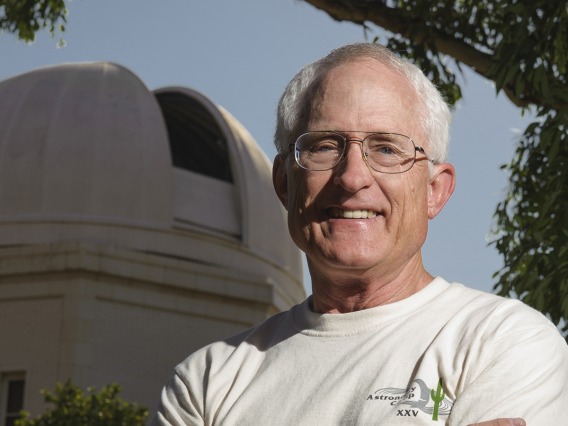The Universe, when examined on the largest possible sizes, contains many mysteries. The gravity responsible for holding galaxies and clusters of galaxies together is provided mostly by dark matter. In galaxy clusters, there is five times more dark matter than the matter that makes up the stars, planets and gas we see. To date, our only insight into dark matter comes from astronomical observations. Furthermore the Universe is not even mostly composed of dark matter, but rather dark energy. Under the influence dark energy, the expansion of the Universe is not slowing down, but is in fact accelerating. The field of Cosmology is dedicated to the study of the Universe as a whole and its evolution.
By observing galaxies and quasars at different distances from us, astronomers at Steward can glimpse snapshots of the Universe at various points in its history. These observations can test and refine our understanding of the Universe. In addition they are necessary inputs into computational simulations that test whether our ideas of the what controls the evolution of the Universe are accurate. Astronomers at Steward are also trying to better understand the properties of dark energy, by examining it's effect on the fundamental constants of physics as measured by absorption lines in quasar spectra, to look for evidence of a new component of the gravitational force.




















